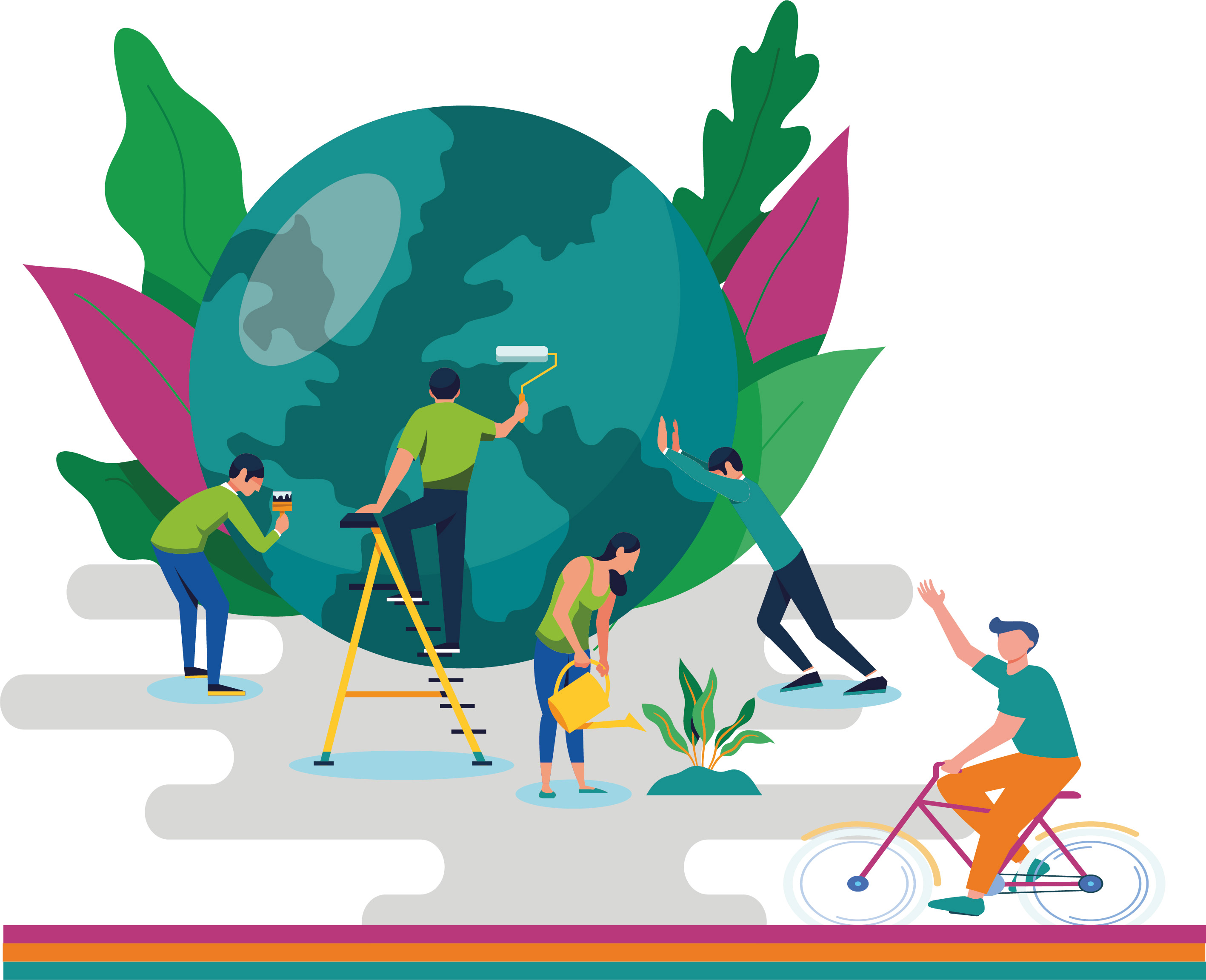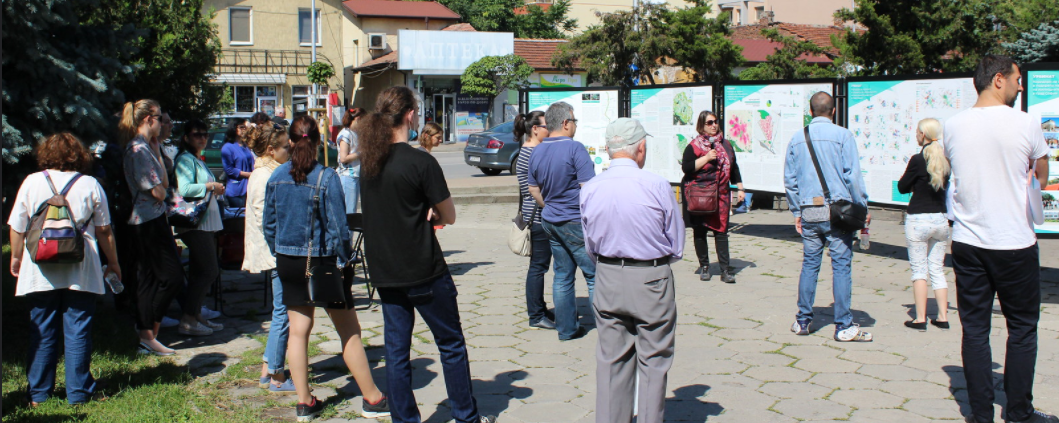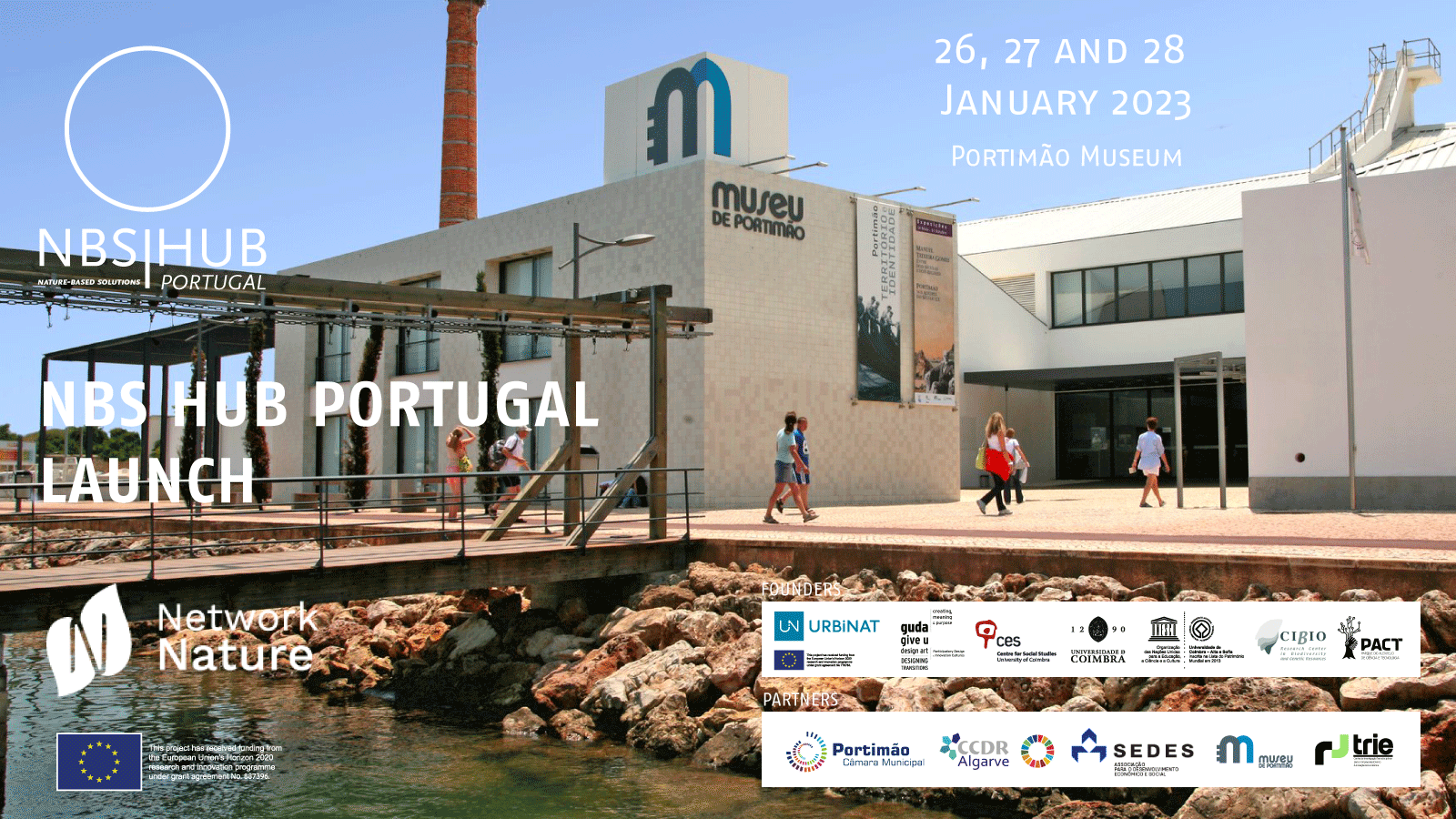In April and May 2021 URBiNAT partners in Siena hosted a series of webinars covering diverse aspects of the co-creation of a Healthy Corridor in the district of Ravacciano. The complete webinar series can be viewed again here.
WEBINAR 1: Rigenerare un quartiere partendo dall’agricoltura
WEBINAR 1: Regenerating a neighborhood starting from agriculture
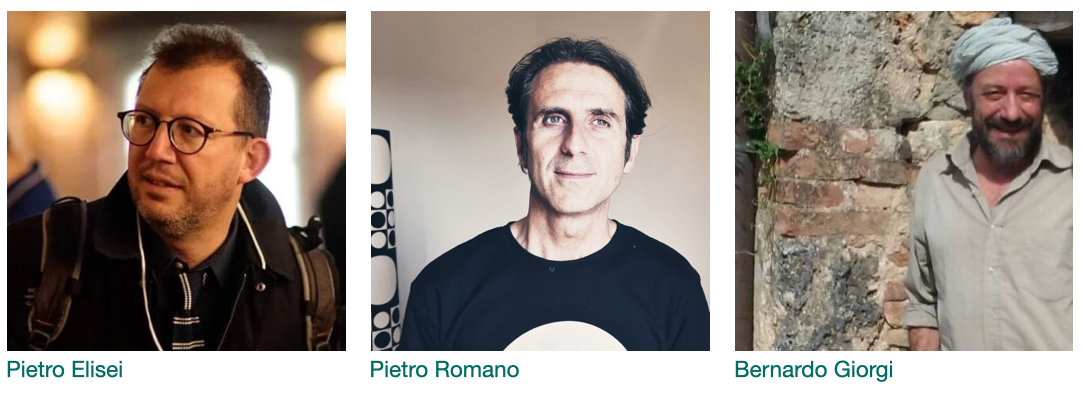
Il caso del Comune di Pozzuoli e del progetto MAC- Monterusciello Agro City: come combattere la povertà urbana rigenerando i quartieri periferici e trasformandoli in occasioni di sviluppo economico. MAC propone una serie di attività con l’obiettivo di riqualificare l’ambiente urbano e, allo stesso tempo, combattere la povertà nel quartiere di Monterusciello, dove le attuali problematiche del contesto sociale si combinano ad un difficile ambiente urbano, caratterizzato da vacuità, anonimato e decadimento degli spazi comuni. Attraverso un processo di sviluppo economico, imprenditoriale e sociale, MAC vuole creare un nuovo paesaggio agro-urbano basato su un’interconnessione di aree urbane e terreni agricoli, che favorisca una trasformazione creativa dell’essenza del quartiere.
The case of the Municipality of Pozzuoli and the MAC- Monterusciello Agro City project: how to fight urban poverty by regenerating peripheral neighbourhoods and transforming them into opportunities for economic development. MAC proposes a series of activities with the objective of regenerating the urban environment and, at the same time, combating poverty in the Monterusciello neighbourhood, where the current problems of the social context combine with a difficult urban environment, characterised by vacuity, anonymity and decay of common spaces. By means of a process of economic, entrepreneurial and social development, MAC aims to create a new agro-urban landscape based on an interconnection of urban areas and agricultural land, which fosters a creative transformation of the essence of the neighbourhood.
WEBINAR 2: Lo sguardo di genere sulla città
WEBINAR 2: The gender gaze on the city
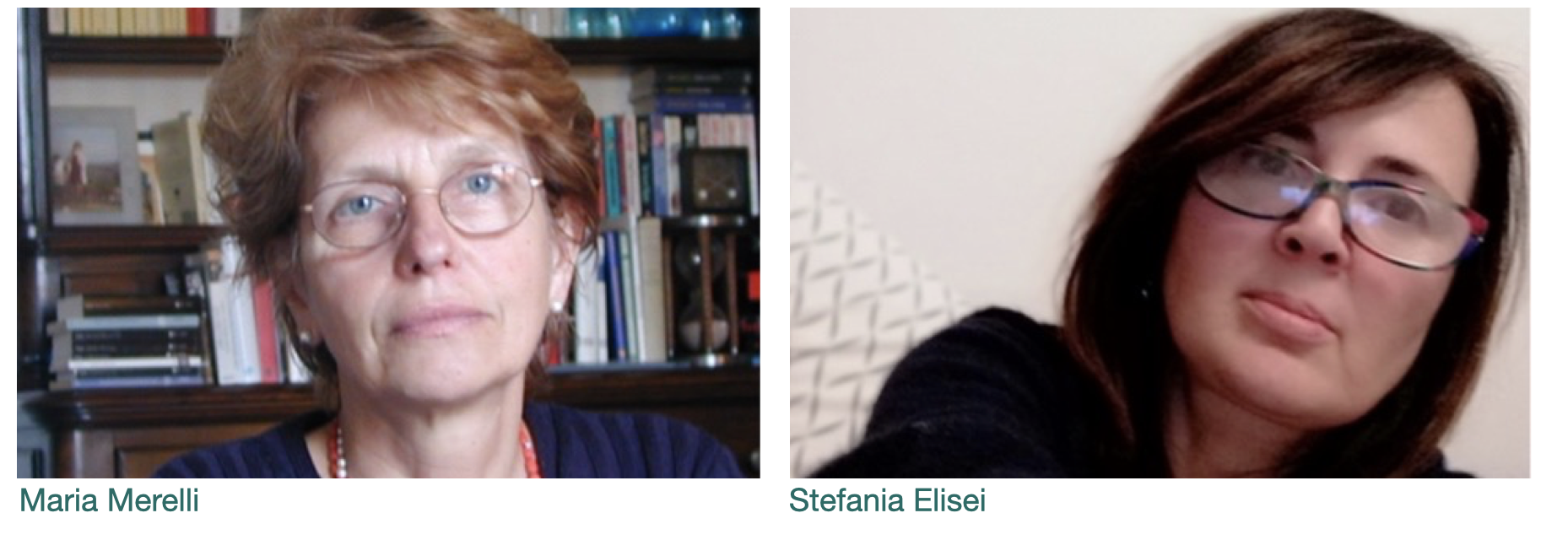
Le donne fanno esperienza della città esprimendo bisogni di tempi e spazi specifici, con un’attenzione inclusiva a come l’organizzazione fisica e sociale impatta sulle relazioni e sulle generazioni nella vita quotidiana. La città e il quartiere non sono solo il costruito e la trama di spazi cresciuti nel tempo, ma una rete di relazioni che hanno al centro le donne e le loro attività quotidiane. Impegnate a mettere in connessione necessità e tempi della vita lavorativa con quelli familiari, con quelli dei bambini e anziani da accudire e con quelli dei servizi presenti nel territorio, le donne offrono alla pianificazione urbana uno sguardo non neutro e azioni per una qualità della vita inclusiva e amichevole per tutti/e, come ci dicono alcune buone pratiche.
Women experience the city by expressing needs for specific times and spaces, with an inclusive focus on how physical and social organization impacts relationships and generations in daily life. The city and the neighborhood are not just the built and the weave of spaces that have grown over time, but a network of relationships that have women and their daily activities at the center. Engaged in connecting the needs and times of working life with those of the family, with those of children and the elderly to care for and with those of the services present in the territory, women offer urban planning a non-neutral look and actions for an inclusive and friendly quality of life for all, as some good practices tell us.
WEBINAR 3: Patti di collaborazioni e beni comuni
WEBINAR 3: Collaboration Pacts and Common Goods

Come funzionano i patti per la cura dei beni comuni e che impatto hanno sulle comunità.
Con Daniela Ciaffi Vicepresidente di Labsus, Laboratorio per la sussidiarietà, affronteremo il tema della cura dei beni comuni all’interno della comunità con un riferimento specifico alle nuove sfide che ci ha posto la Pandemia nell’ultimo anno.
Duccio Nello Peccianti dell’Associazione Le Mura e Gabriele Papi del Comitato di Ravacciano racconteranno, poi, la loro esperienza con i patti di collaborazione e il percorso attivato nella comunità senese.
How pacts for the care of the commons work and what impact they have on communities.
With Daniela Ciaffi Vice-President of Labsus, Laboratory for Subsidiarity, we will address the issue of the care of the commons within the community with a specific reference to the new challenges that the Pandemic has posed in the last year.
Duccio Nello Peccianti of the Le Mura Association and Gabriele Papi of the Ravacciano Committee will then talk about their experience with the pacts of collaboration and the path activated in the Sienese community.
WEBINAR 4: rigenerazione urbana che parte dalla cultura
WEBINAR 4: urban regeneration starting from culture
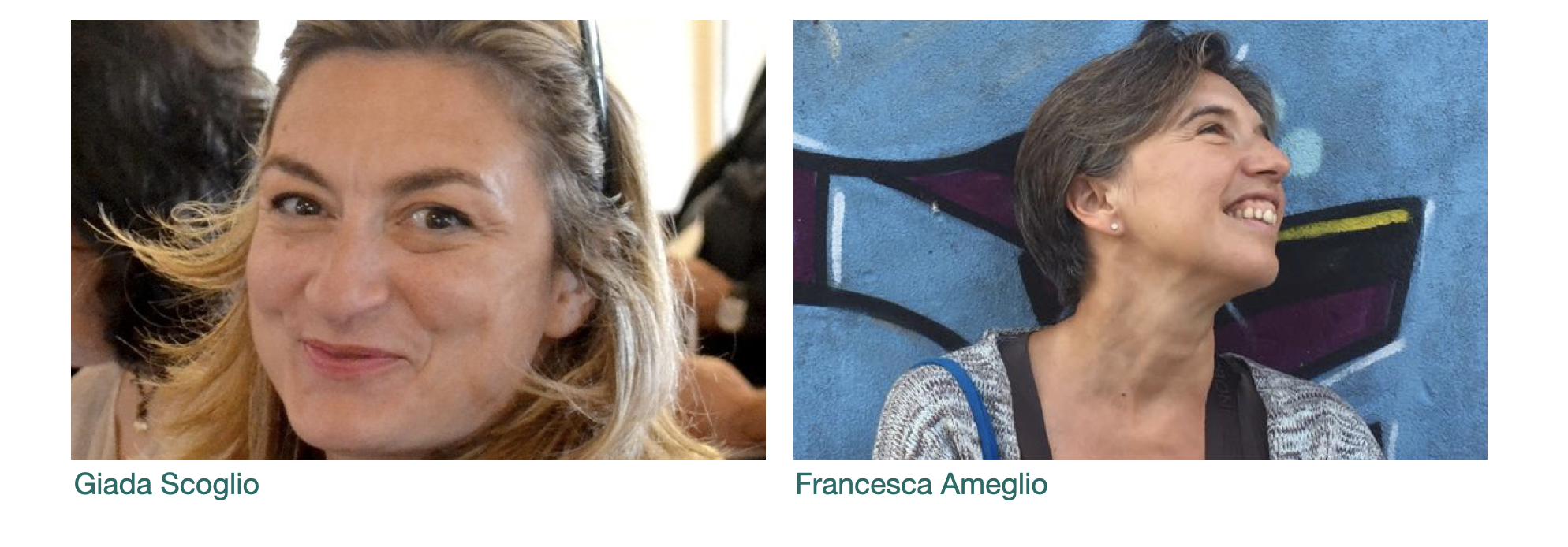
Negli ultimi anni la rigenerazione su base culturale ha avuto importanti sviluppi, diventando un vero e proprio fenomeno sociale ed economico. Si contano tante esperienze sia in ambito urbano che nei territori periferici. Si tratta di percorsi che evidenziano le tante difficoltà e criticità ancora da affrontare, ma che offrono delle interessanti prospettive sul futuro. Insieme Giada Scoglio di Semi di Rigenerazione analizzeremo alcune di queste esperienze. Con Francesca Ameglio Direttrice di “2050 ArchiFest- abitare il mondo altrimenti” analizzeremo l’avvio del processo di rigenerazione urbana a Colle Val d’Elsa (SI). Un territorio che ha sempre avuto la forza e il desiderio di rinnovarsi con modelli urbani innovativi e ha sempre creduto nel valore culturale dell’architettura. Dopo la profonda crisi economica che ha segnato tutto il territorio, Colle di Val d’Elsa è di fronte alla grande sfida di ridisegnare il proprio modello di sviluppo, un modello che alla luce di questa pandemia è ancora più urgente.
In recent years, regeneration on a cultural basis has had important developments, becoming a real social and economic phenomenon. There are many experiences both in urban and peripheral areas. These are paths that highlight the many difficulties and critical issues still to be addressed, but that offer interesting perspectives on the future. Together with Giada Scoglio of Semi di Rigenerazione we will analyze some of these experiences. With Francesca Ameglio Director of “2050 ArchiFest- abitare il mondo altrimenti” we will analyze the start of the urban regeneration process in Colle Val d’Elsa (SI).
A territory that has always had the strength and the desire to renew itself with innovative urban models and has always believed in the cultural value of architecture. After the deep economic crisis that has marked the whole territory, Colle di Val d’Elsa is facing the great challenge of redesigning its development model, a model that in light of this pandemic is even more urgent.
WEBINAR 5: La sfida per la carbon neutrality e la sostenibilità delle città
WEBINAR 5: The challenge for carbon neutrality and sustainability of cities
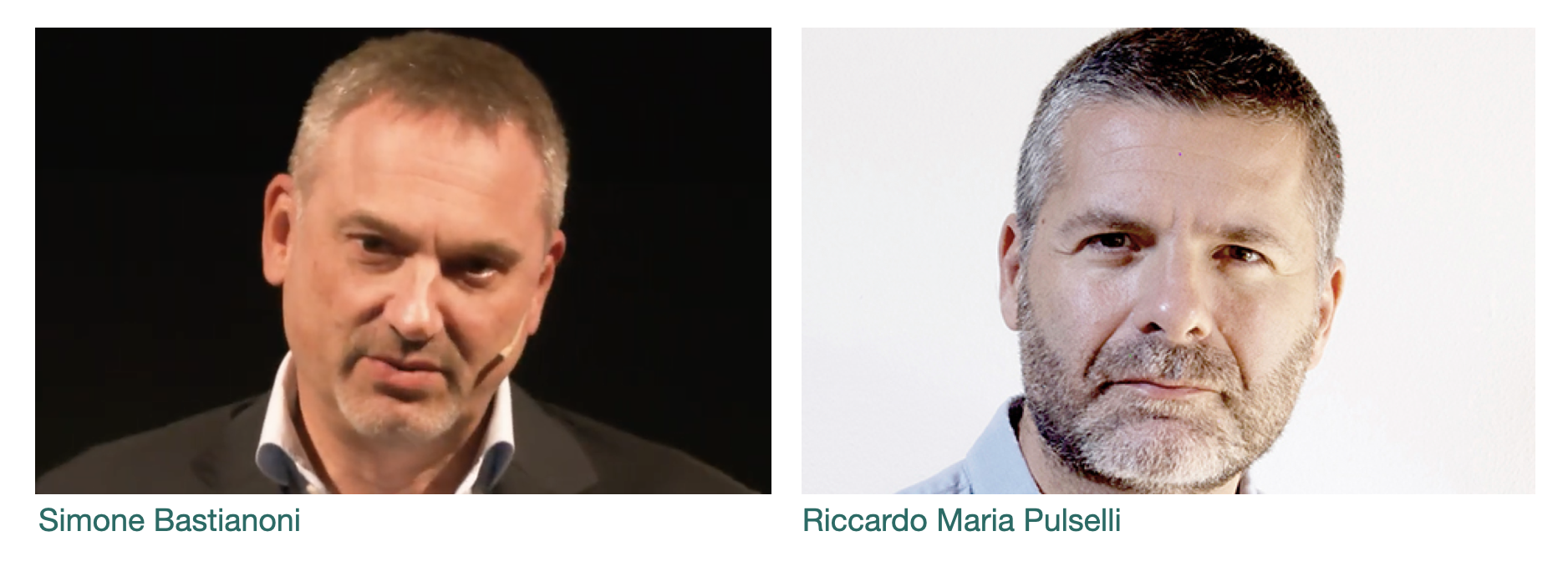
Il cambiamento climatico sta colpendo il nostro pianeta sotto forma di condizioni climatiche estreme quali siccità, ondate di caldo, piogge intense, alluvioni e frane sempre più frequenti anche in Europa. Per riuscire a contenere il riscaldamento globale, raggiungere il traguardo emissioni zero entro la metà del ventunesimo secolo è essenziale. Tale obiettivo è previsto anche dall’Accordo di Parigi firmato da 195 paesi, inclusa l’Unione europea. A dicembre 2019 la Commissione ha presentato il Green deal europeo, il piano per rendere l’Europa climaticamente neutrale entro il 2050. Le emissioni zero (o carbon neutrality) consistono nel raggiungimento di un equilibrio tra le emissioni e l’assorbimento di carbonio. Per raggiungere tale obiettivo, l’emissione dei gas serra dovrà essere controbilanciata dall’assorbimento delle emissioni di carbonio.
Climate change is affecting our planet in the form of extreme weather conditions such as droughts, heat waves, heavy rainfall, floods and landslides, which are becoming increasingly frequent in Europe. Achieving zero emissions by the middle of the 21st century is essential to curb global warming. This goal is also included in the Paris Agreement signed by 195 countries, including the European Union. In December 2019, the Commission unveiled the European Green deal, the plan to make Europe climate neutral by 2050.
Zero emissions (or carbon neutrality) is about achieving a balance between emissions and carbon uptake. To achieve this goal, the emission of greenhouse gases will have to be counterbalanced by the absorption of carbon emissions.
WEBINAR 6: Crowdfunding civico: quando la comunità sostiene i progetti culturali
WEBINAR 6: Civic Crowdfunding: when the community supports cultural projects
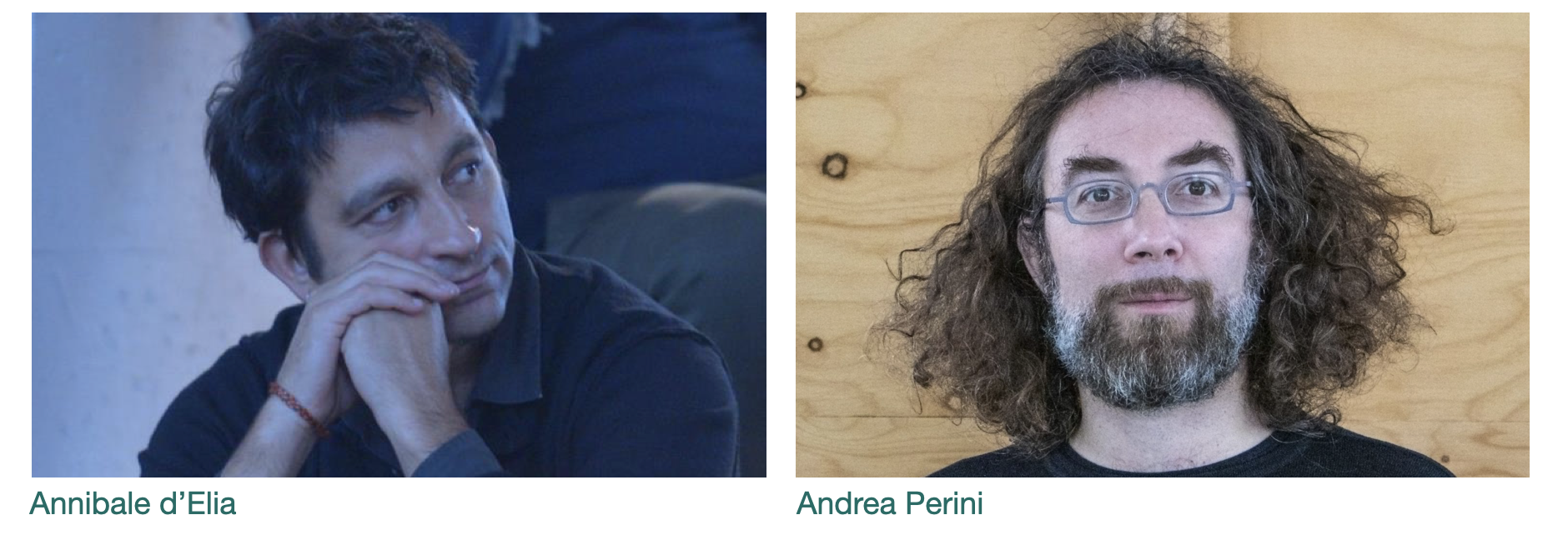
Il crowdfunding civico come occasione di sostenibilità dal basso e di coinvolgimento diretto dei cittadini.
Si è appena concluso con successo il Crowdfunding civico del Comune di Milano: gli enti non profit e i cittadini hanno unito le forze per migliorare la città con una nuova raccolta fondi per prendersi cura dei quartieri attraverso progetti di utilità sociale. Attraverso un bando pubblico il Comune ha selezionato 20 progetti presentati da realtà non profit del territorio e ogni realtà selezionata ha avuto fino a 60 giorni per raccogliere una parte delle risorse (il 40%) su una piattaforma online; il Comune finanzierà la restante parte dei costi (il 60%) con un contributo a fondo perduto fino a 60.000 Euro per progetto. Con Annibale D’Elia, direttore Innovazione economica e Sostegno all’impresa del Comune di Milano, analizzeremo i punti di forza e debolezza di questa esperienza e con Andrea Perini scopriremo il MadreProject, Scuola del pane e dei luoghi, la prima scuola per l’innovazione del pane che forma esperti fornai come attivatori di comunità per la rigenerazione dei quartieri urbani e le aree interne.
Civic crowdfunding as an opportunity for sustainability from below and direct involvement of citizens. The Civic Crowdfunding of the Municipality of Milan has just ended successfully: non-profit organizations and citizens have joined forces to improve the city with new fundraising to take care of the neighborhoods through socially useful projects. Through a public announcement the Municipality has selected 20 projects presented by non-profit organizations in the area and each selected organization has had up to 60 days to collect a part of the resources (40%) on an online platform; the Municipality will finance the remaining part of the costs (60%) with a non-refundable contribution up to 60,000 Euros per project. With Annibale D’Elia, Director of Economic Innovation and Business Support of the City of Milan, we will analyze the strengths and weaknesses of this experience and with Andrea Perini, we will discover the MadreProject, School of bread and places, the first school for bread innovation that trains expert bakers as community activators for the regeneration of urban neighborhoods and inner areas.
WEBINAR 7: Una città a misura di anziano
WEBINAR 7: A city on an elderly scale
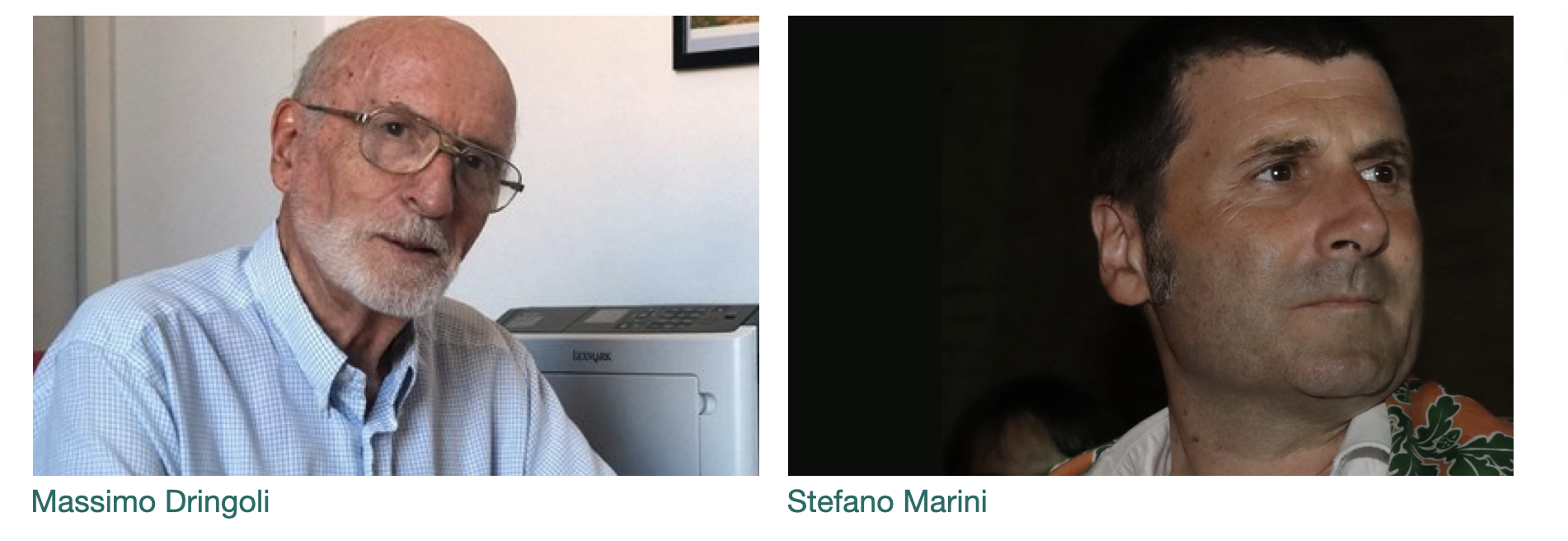
Tra soli 15 anni, il 60 % delle persone vivranno in città e un quarto di loro avrà più di 60 anni. Sarà quindi sempre più importante progettare città “age-friendly”, che tengano conto di aspetti interdisciplinari che vanno dalla psicologia, all’urbanistica, all’architettura e alla sociologia. L’obiettivo sarà quello di pensare a un “invecchiamento attivo” inteso come partecipazione continua a tutti gli aspetti della vita sociale, economica, culturale, spirituale e civile. Per fare ciò è necessario coinvolgere in primis i cittadini anziani chiedendo loro di identificare i problemi che ritengono fondamentali per lo sviluppo delle città e considerarli come attori chiave nella pianificazione.
In just 15 years, 60 % of people will be living in cities and a quarter of them will be over 60 years old. It will therefore be increasingly important to design “age-friendly” cities that take into account interdisciplinary aspects ranging from psychology, urban planning, architecture, and sociology. The aim will be to think of “active aging” as continuous participation in all aspects of social, economic, cultural, spiritual, and civil life. In order to do this, it is necessary to involve first of all senior citizens by asking them to identify the problems they consider fundamental for the development of cities and to consider them as key players in planning.
Webinar 8: La CSR (Corporate Social Responsibility) delle aziende e una nuova sensibilità alla cura del territorio
Webinar 8: CSR (Corporate Social Responsibility) of companies and a new sensitivity to care for the territory
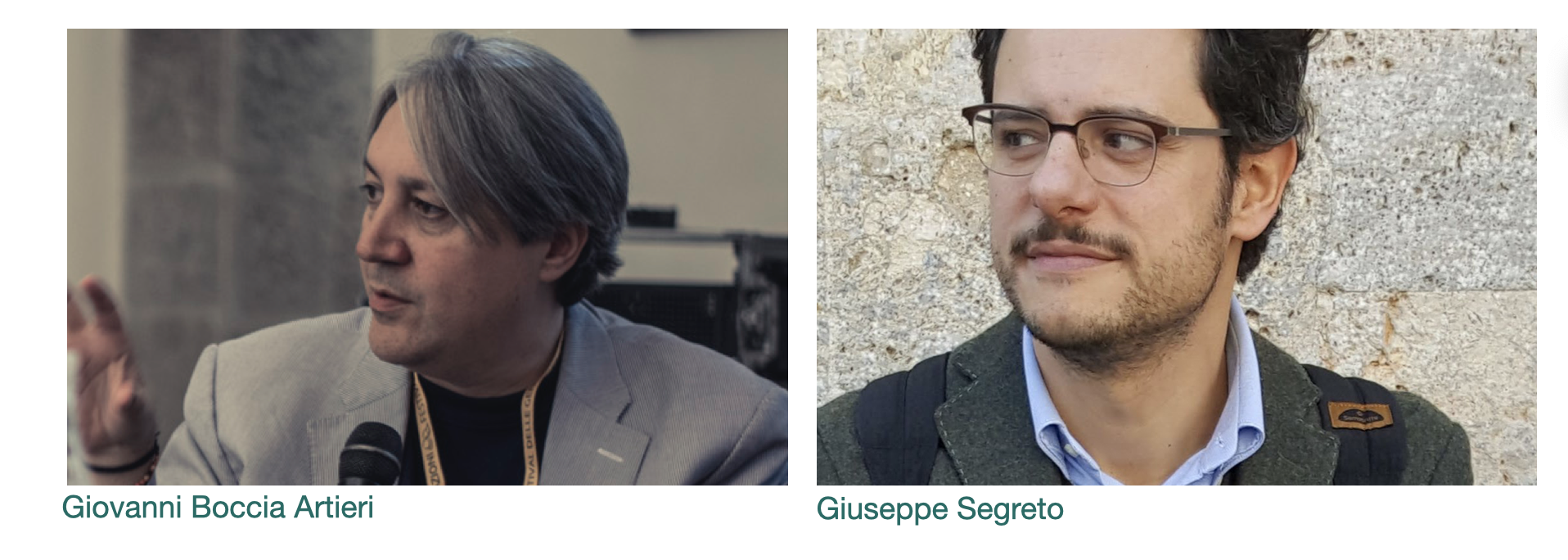
Le aziende sono sempre più sensibili alle tematiche ambientali e hanno adottato modelli e progetti che vanno a incidere direttamente sui territori. Come si può rafforzare il rapporto virtuoso tra bene comune, pubblica amministrazione e mondo delle aziende?
Incontro realizzato in collaborazione con il MCI – Master in Comunicazione d’Impresa dell’Università di Siena.
Companies are increasingly sensitive to environmental issues and have adopted models and projects that have a direct impact on local areas. How can we strengthen the virtuous relationship between the common good, public administration, and the business world?
Meeting organized in collaboration with the MCI – Master in Business Communication of the University of Siena.
Webinar 9: Le città amiche dei bambini e degli adolescenti
Webinar 9: Child-Friendly Cities
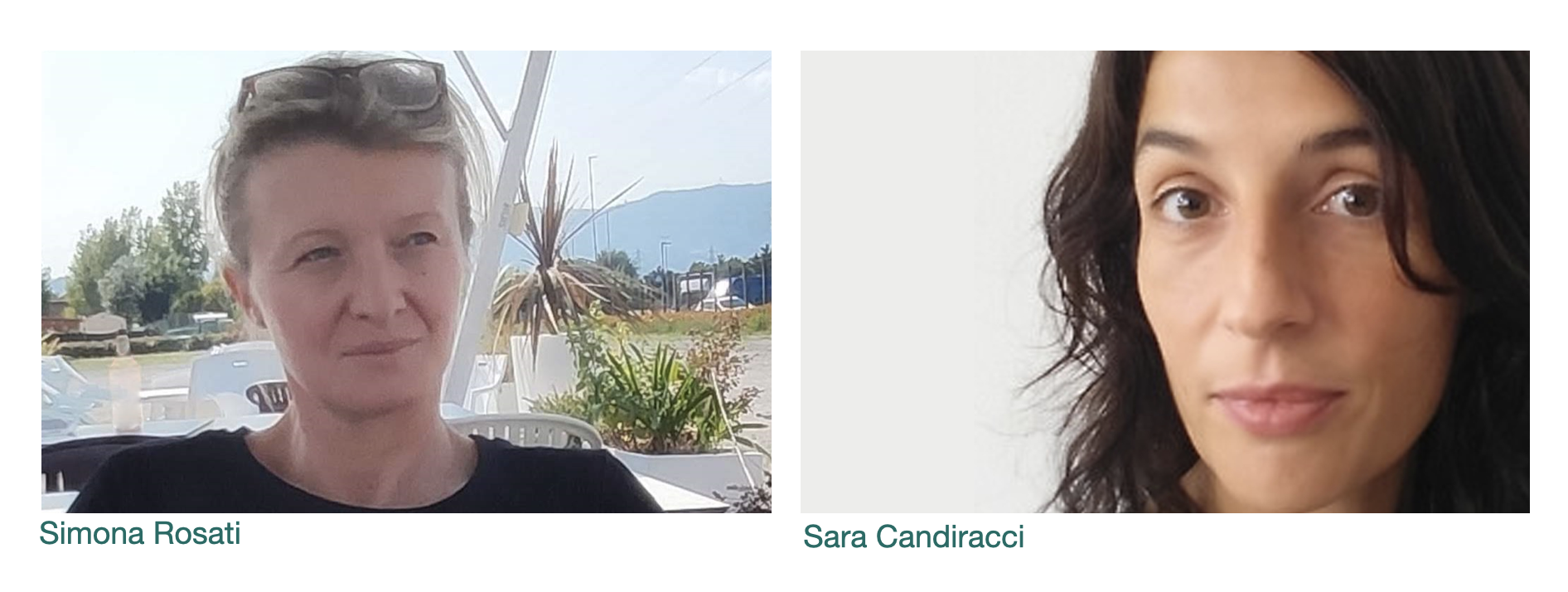
Una Città Amica è una città impegnata in un processo continuo di implementazione dei diritti dei bambini e degli adolescenti.
A Friendly City is a city committed to an ongoing process of implementing the rights of children and adolescents.


